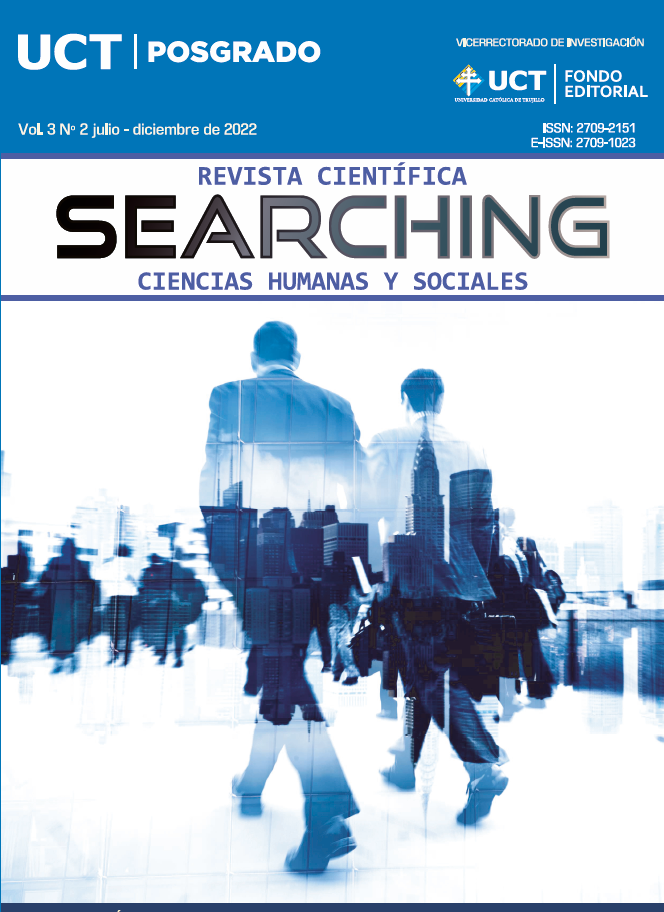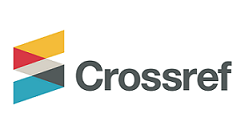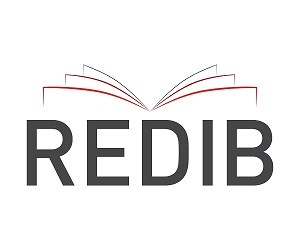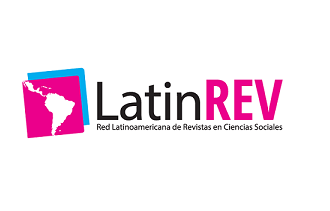Directores como Líderes Pedagógicas: Estudio de caso sobre las prácticas de Liderazgo en una Escuela Pública Peruana
DOI:
https://doi.org/10.46363/searching.v3i2.1Palabras clave:
escuela pública peruana, líder pedagógico, liderazgo pedagógicoResumen
El objetivo de este estudio de caso cualitativo es reconocer las percepciones, logros y desafíos respecto a las prácticas de liderazgo de dos directoras de una escuela pública peruana. Se empleó un muestreo no probabilístico intencional para la selección de participantes; una entrevista semiestructurada para la recolección de datos; y la codificación abierta, axial y selectiva para el análisis de las transcripciones. Los hallazgos de este estudio respaldan la idea de que efectivamente los directores están en un tránsito progresivo hacia un liderazgo pedagógico, el cual prioriza la mejora de los procesos de enseñanza – aprendizaje, y tiene un enfoque más compartido, distribuido, democrático y orientativo. No obstante, se enfrentan a desafíos tales como: la atención a nuevas necesidades formativas, la construcción de la capacidad de liderazgo, el desarrollo de una cultura colaborativa y comunidades de aprendizaje, la sobrecarga laboral y la promoción de una participación más activa de las familias.
Citas
Antonakis, J., & Day, D. (2018). Leadership: Past, Present and Future. In J. Antonakis & D. Day (Eds.), The nature of leadership (pp. 3–26). SAGE Publications, Inc. https://www-doi-org.ezproxy.library.uq.edu.au/10.4135/9781506395029.n1
Arteaga, M. (2016). Liderazgo pedagógico directivo, el monitoreo-acompañamiento pedagógico y compromiso de gestión escolar; Vitarte-2016. https://www.lareferencia.info/vufind/Record/PE_650fcfca914447fb151730e71ae9fd39
Askell-Williams, H., & Koh, G. A. (2020). Enhancing the sustainability of school improvement initiatives. School Effectiveness and School Improvement, 31(4), 660–678. https://doi.org/10.1080/09243453.2020.1767657
Assunção, M. (2004). The impact of school culture and leadership on new teachers’ learning in the workplace. International Journal of Leadership in Education, 7(4), 297–318. https://doi.org/10.1080/1360312042000226918
Atkins, L., y Wallace, S. (2012). Interviewing in Educational Research. In Qualitative research in education (pp. 85–106). SAGE Publications Ltd. https://dx.doi.org/10.4135/9781473957602
Broughton, S. (2019). Case Study Research. In H. Van den Bulck, M. Puppis, K. Donders, & V. A. L. (Eds.), The Palgrave Handbook of Methods for Media Policy Research. Palgrave Macmillan, Cham. https://doi-org.ezproxy.library.uq.edu.au/10.1007/978-3-030-16065-4_4
Bryant, A., y Kazan, A. L. (2012). Self-leadership: how to become a more successful, efficient, and effective leader from the inside out. McGraw Hill Professional.
Contreras, T. S. (2016). Liderazgo pedagógico, liderazgo docente y su papel en la mejora de la escuela: una aproximación teórica. Propósitos y Representaciones, 4(2), 231–258. https://doi.org/10.20511/pyr2016.v4n2.123
Coz, L. (2019). Liderando un acompañamiento para mejorar resultados [Universidad Nacional Hermilio Valdizán]. http://repositorio.unheval.edu.pe/handle/UNHEVAL/4755
Day, C., Gu, Q., y Sammons, P. (2016). The Impact of Leadership on Student Outcomes: How Successful School Leaders Use Transformational and Instructional Strategies to Make a Difference. Educational Administration Quarterly, 52(2), 221–258. https://doi.org/10.1177/0013161X15616863
Fullan, M. (2002). The Change Leader (pp. 16–20). Educational Leadership.
Fullan, M. (2020). The nature of leadership is changing. European Journal of Education, 55(2), 139–142. https://doi.org/10.1111/ejed.12388
Fullan, M., Hill, P., y Crévola, C. (2006). Breakthrough. Corwin Press.
Goleman, D. (2005). Liderazgo que obtiene resultados. Harvard Business Review, 11, 109–122. http://ecob.scienceontheweb.net/liderazgo1.pdf
Guadalupe, C., León, J., Rodríguez, J., y Vargas, S. (2017). Capítulo 3: Docentes y Directores de la Educación Básica Regular. In Estado de la Educación en el Perú (pp. 103–144). Grupo de Análisis para el Desarrollo (GRADE). https://doi.org/10.15381/rsoc.v0i27.18979
Guerrero, L. (2012). Modelo Escuelas Marca Perú: Rasgos y resultados que las definen y procesos requeridos para alcanzarlos. Comisión Escuelas Marca Perú, Ministerio de Educación.
Hallinger, P. (2011). Leadership for learning: lessons from 40 years of empirical research. Journal of Educational Administration, 49(2), 125–142. https://doi.org/10.1108/09578231111116699
Hallinger, P., y Wang, W.-C. (2015). The Evolution of Instructional Leadership. In Assessing Instructional Leadership with the Principal Instructional Management Rating Scale (pp. 1–23). Springer International Publishing. https://doi.org/10.1007/978-3-319-15533-3_1
Hammersley, M. (2020). Transcription of speech. In S. (Eds.). Ward, M. R. M., & Delamont (Ed.), Handbook of qualitative research in education (pp. 374–379). ProQuest Ebook Central.
Harris, A. (2010). Distributed leadership. In T. Bush, L. Bell, y D. Middlewood (Eds.), The principles of educational leadership and management (pp. 55–69). Sage.
Hauge, T. E., Norenes, S. O., y Vedøy, G. (2014). School leadership and educational change: Tools and practices in shared school leadership development. Journal of Educational Change, 15(4), 357–376. https://doi.org/10.1007/s10833-014-9228-y
Hernández-Sampieri, R., y Mendoza, C. (2018). Metodología de la Investigación. Las rutas cuantitativas, cualitativas y mixtas. McGraw-Hill Education.
Horenburg, M. (2018). Soft skills. Journal Fur Asthetische Chirurgie, 11(1), 40–43. https://doi.org/10.1007/s12631-017-0110-7
Howard-Grenville, J. (2020). How to sustain your organization’s culture when everyone is remote. MIT Sloan Management Review, 62(1).
Hubbard, L., Mehan, H., y Stein, M. K. (2006). Reform as learning: School reform, organizational culture, and community politics in San Diego. Routledge.
Izquierdo, M. (2015). Informantes y muestreo en investigación cualitativa. Informantes y Muestreo En Investigación Cualitativa, 17(30), 1148–1150. https://doi.org/10.33132/01248146.65
Kniffin, K. M., Narayanan, J., Anseel, F., Antonakis, J., Ashford, S. P., Bakker, A. B., Bamberger, P., Bapuji, H., Bhave, D. P., Choi, V. K., Creary, S. J., Demerouti, E., Flynn, F. J., Gelfand, M. J., Greer, L. L., Johns, G., Kesebir, S., Klein, P. G., Lee, S. Y., … Vugt, M. van. (2021). COVID-19 and the workplace: Implications, issues, and insights for future research and action. American Psychologist, 76(1), 63–77. https://doi.org/10.1037/amp0000716
Lambert, L. (1998). How to build leadership capacity. Educational Leadership, 55(7), 17–19. https://doi.org/10.4324/9780429495670-18
Lambert, L. (2011). What Does Leadership Capacity Really Mean? Counterpoints, 408, 34–36. http://www.jstor.org/stable/42981264
Leithwood, K., Harris, A., y Hopkins, D. (2020). Seven strong claims about successful school leadership revisited. School Leadership and Management, 40(1), 5–22. https://doi.org/10.1080/13632434.2019.1596077
Longmuir, F. (2020). Exploring Intersections of Educational Leadership , Educational Change and Student Empowerment. 26(1), 46–53.
Martín-Crespo, M., & Salamanca, A. (2007). El muestreo en la investigación cualitativa (Issue 27). Nure Investigación,. papers2://publication/uuid/A346E589-7B95-4A7C-A290-D2E6A93E5731
Marvasti, A., y Tanner, S. (2020). Interviews with individuals. In S. Ward, M. R. M., & Delamont (Ed.), Handbook of qualitative research in education (pp. 329–337). ProQuest Ebook Central.
Ministerio de Educación del Perú [MINEDU]. (2014). Marco de Buen Desempeño del Directivo. http://www.minedu.gob.pe/n/xtras/marco_buen_desempeno_directivo.pdf
Pampuch, D. (2010). Looking for the next generation of principals: Generation Y teachers ’ perceptions of and aspirations for leadership in Victorian Independent Schools. April.
Pont, B. (2020). A literature review of school leadership policy reforms. European Journal of Education, 55(2), 154–168. https://doi.org/10.1111/ejed.12398
Robson, J. (2020). Online methods in educational research. In S. Ward, M. R. M., Delamont (Ed.), Handbook of qualitative research in education (pp. 349–359). ProQuest Ebook Central.
Rodríguez-Molina, G. (2011). Funciones y rasgos del liderazgo pedagógico en los centros de enseñanza. Educación y Educadores, 14(2). https://educacionyeducadores.unisabana.edu.co/index.php/eye/article/view/1921
Sahlberg, P., y Cobbold, T. (2021). Leadership for equity and adequacy in education. School Leadership and Management, 0(0), 1–23. https://doi.org/10.1080/13632434.2021.1926963
Simons, H. (2009). Case study research in practice. SAGE Publications Ltd. https://dx-doi-org.ezproxy.library.uq.edu.au/10.4135/9781446268322
Smith, M. (2018). Case study research strategy. In Research methods in sport (pp. 145–159). SAGE | Learning Matters. https://www-doi-org.ezproxy.library.uq.edu.au/10.4135/9781526433992.n8
Spicer, A. (2020). Organizational Culture and COVID-19. December, 1737–1740. https://doi.org/10.1111/joms.12625
Swanborn, P. (2010). What data to collect? In Case study research (pp. 73–96). SAGE Publications, Inc. https://www-doi-org.ezproxy.library.uq.edu.au/10.4135/9781526485168
Tello, J., y Vitón, Y. (2019). Modelo de acompañamiento y monitoreo para mejorar la gestión pedagógica del nivel primario y secundario de la IE No 16194, Nueva Urbanización del Distrito de Bagua, Región Amazonas-2015. https://repositorio.unprg.edu.pe/handle/20.500.12893/6837
Tight, M. (2017). Case study research. In D. Wyse, N. Selwyn, E. Smith, & L. E. Suter (Eds.), The BERA/SAGE Handbook of Educational Research: Two Volume Set (pp. 376–394). SAGE Publications Ltd. https://www-doi-org.ezproxy.library.uq.edu.au/10.4135/9781473983953.n19
Yana, M., & Adco, H. (2018). Acompañamiento pedagógico y el rol docente en jornada escolar completa: Caso instituciones educativas Santa Rosa y Salesianos de San Juan Bosco-Puno Perú. Revista de Investigaciones Altoandinas, 20(1), 137–148.
Zaccaro, S. J. (2007). Trait-based perspectives of leadership. American Psychologist, 62(1), 6–16. https://doi.org/10.1037/0003-066X.62.1.6















